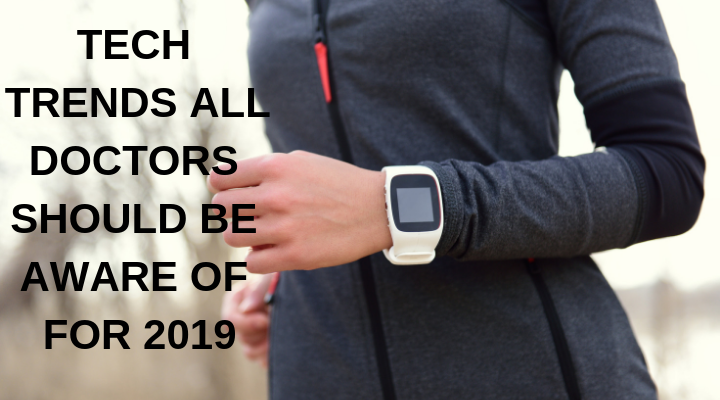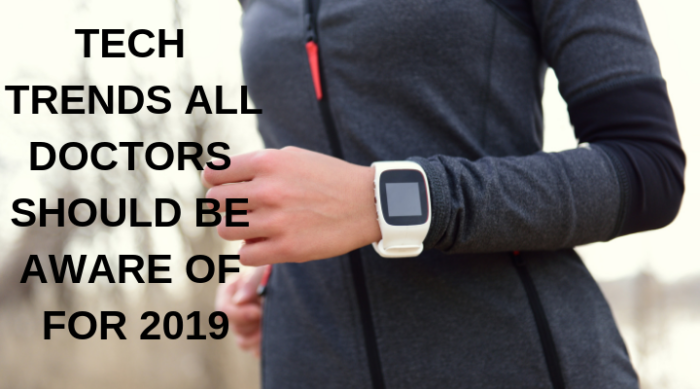
Each year, we look ahead to the coming trends in technology with a special eye on the healthcare industry. Adapting new technologies to medical care is especially exciting, because it can improve the care of millions of people. This year is no different and there are some exciting breakthroughs on the way.
Telemedicine
Over the past couple of years, telemedicine has started to become more accessible and more widely known. Our technology has now reached a point at which doctors can consult patients over the internet, diagnose some medical conditions, and submit medication prescriptions. This practice provides benefits for both the doctor and patient. The doctor can treat more patients in a shorter amount of time, while bedridden patients or those located in rural areas have greater access to care. Telemedicine is expected to continue to evolve over the next 12 months.
Wearable Technology
We already have wearable tech that records biological data and submits it to the patient’s doctor. Currently, this is primarily helpful in monitoring blood pressure, breathing, and heart rate. There has been limited success in monitoring blood sugar levels, but improvements in that area are in the works. As we head into a new year, wearable tech may be able to record even more valuable information, which will improve patient care.
Smart Pills
Another technology that’s being developed and is expected to hit the market is the smart pill. This technology will deposit a sensor into the blood screen that can record everything from blood sugar levels to the effectiveness of medication. In time, the smart pill may even be used to help allergists, like Dr. Summit Shah, monitor the symptoms of seasonal allergies. This type of internal monitoring and data collecting will help doctors control medication doses more accurately, so side effects can be minimized.
Artificial Intelligence
AI technology is already used in a number of ways in the healthcare industry, including in some of the technologies previously listed here. As we move forward, AI tech is expected to play an even bigger role in healthcare. One primary way it’s expected to change medical treatment is in diagnosing patients. AI programs in diagnostic imaging will provide a higher degree of accuracy, helping caregivers pinpoint tumors and other anomalies more precisely.
Patient Interface Technology
We already have EHR (electronic health record) software, which accumulates all of the data for each patient from billing to treatment initiatives. This technology is expected to evolve, enabling hospitals to communicate more effectively with their patients. These systems will help patients review the diagnosis of their medical conditions, learn more about proposed treatments, and communicate directly with their caregivers. The ultimate goal in improving upon this technology is to allow patients to play a larger role in their medical care.
Specialized Data Analytics
In the past year, big data was the focus of every business, including healthcare. In the coming year, we’re going to shift to collecting more specific data that can be used to customize service for each patient. For instance, analyzing drug use data can help doctors recognize patients at risk of addiction. This type of data may also be able to help doctors judge the effectiveness of medications and other treatments. Using data collecting software will also help improve billing, reducing discrepancies and errors significantly.
There are many more technological leaps forward expected to change healthcare in the near future. In addition to the introduction of new and more effective medical treatments, technology will help doctors provide better patient care and help patients become more involved in their own care. Adapting new innovations for healthcare will help us to better treat illnesses and other health conditions, so we can live longer, healthier, and happier lives.

